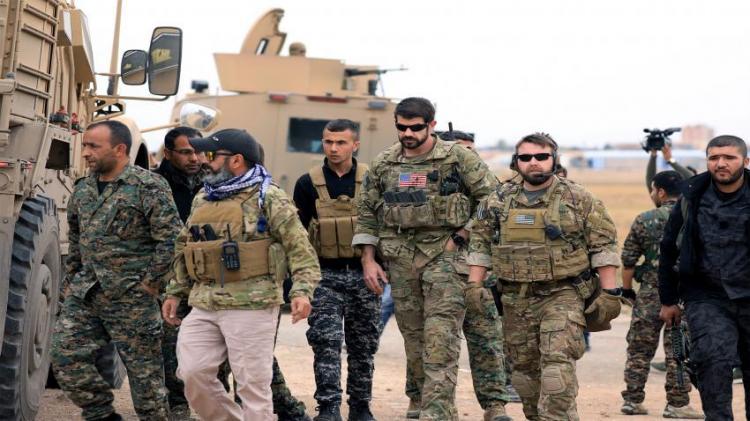US analysts: Washington is closer to convincing SDF of the proposed safe zone
Washington – North-Press Agency
Hadeel Oueiss
Turkish and U.S military officials met on Tuesday at the Turkish Defense Ministry headquarters in Ankara to discuss the establishment of a safe zone in northern Syria.
The Turkish Defense Ministry clarified in a statement that the meeting came after an understanding between the Turkish Defense Minister Hulusi Akar and the US special envoy to Syria James Jeffrey.
The statement noted that the Turkish and the US military delegations agreed to continue joint works at the ministry’s headquarters in Ankara regarding the establishment of a proposed safe zone in the north and northeastern Syria, starting on Tuesday.
In this context, Joel Rubin the former US Deputy Assistant Secretary of State under Barack Obama Administration told North-Press that the continued failure to establish the safe zone, which Turkey has wanted since President Obama era seems to be “vanishing today”.
Rubin added that the main reason is “Russia’s total reluctance in the past to establish this zone under Turkish auspices, where it was an area of influence for Assad’s opponents in Russia’s view.”
“Yet now, under Russian-Turkish coordination and the collapse of the so-called (revolution) against Assad, and the Russian green light for Turkey to invade Afrin, indicate a change in the reality of the situation,” he said.
Rubin pointed out that the safe zone demanded by Turkey needs “a U.S. contribution of troops on the ground or air support, while Washington wasn’t ready to play a role in this scene.”
He also added that the U.S. reaction to Turkey’s purchase of the Russian S-400 air defense system, specifically the Pentagon’s reaction was a vigorous American attempt to emphasize the importance of partnership with Turkey and the unwillingness of the U.S. to losing its ally.
“We have now come to a time when the United States will offer some facilities to Turkey,” Rubin said, “although the Trump administration does not have specific red lines in Syria”, he believes that the Trump administration “does not easily abdicate its gains and its liberated areas from the Islamic State in favor of Turkey, however, there will be a compromise that maintains relations with the allies in Syria (Syrian Democratic Forces) and Turkey,” Joel Rubin, former US Deputy Assistant Secretary of State said.
For his part, the political analyst Giorgio Cafiero sees that Turkey did not take what it wants from the eastern Euphrates by force as it did in Afrin, for a number of reasons, including its inability to carry out a large-scale ground operation in eastern Syria without a green light from the United States to move its air forces.
In Euphrates Shield’s Operation, which lasted for 72 days, Turkey realized that it would need concentrated air support for its campaign in the east of the Euphrates, and thus it waited for an understanding with the United States.
Cafiero points out that the form of the operation Turkey is planning for the east of the Euphrates differs from what happened in the “Euphrates Shield” or “Olive Branch”, where Afrin was considered as the center for terrorist organizations by Turkey.
Whereas in East Euphrates, Turkey seeks to secure observation posts in a security triangle of its concern, namely (Tal Abyad – Ein Issa – Kobani) through common posts with the United States without an escalation and loss of the US gains in the region, adding that what drives Washington to try to reach an understanding with Ankara is Washington’s desire to keep Russia and Syrian government forces away from northern of Syria in light of Turkey’s rapprochement with Russia.
While Charles Lister, the director of the Countering Terrorism and Extremism Program at the Middle East Institute in Washington, wrote: “The United States and Turkey are close to reaching an understanding on the establishment of a safe zone in northern Syria, but the dispute is still on several points, including the size of this area, the role of the Turkish air force, and the role of Turkey-backed Syrian opposition militias in the safe zone”.

